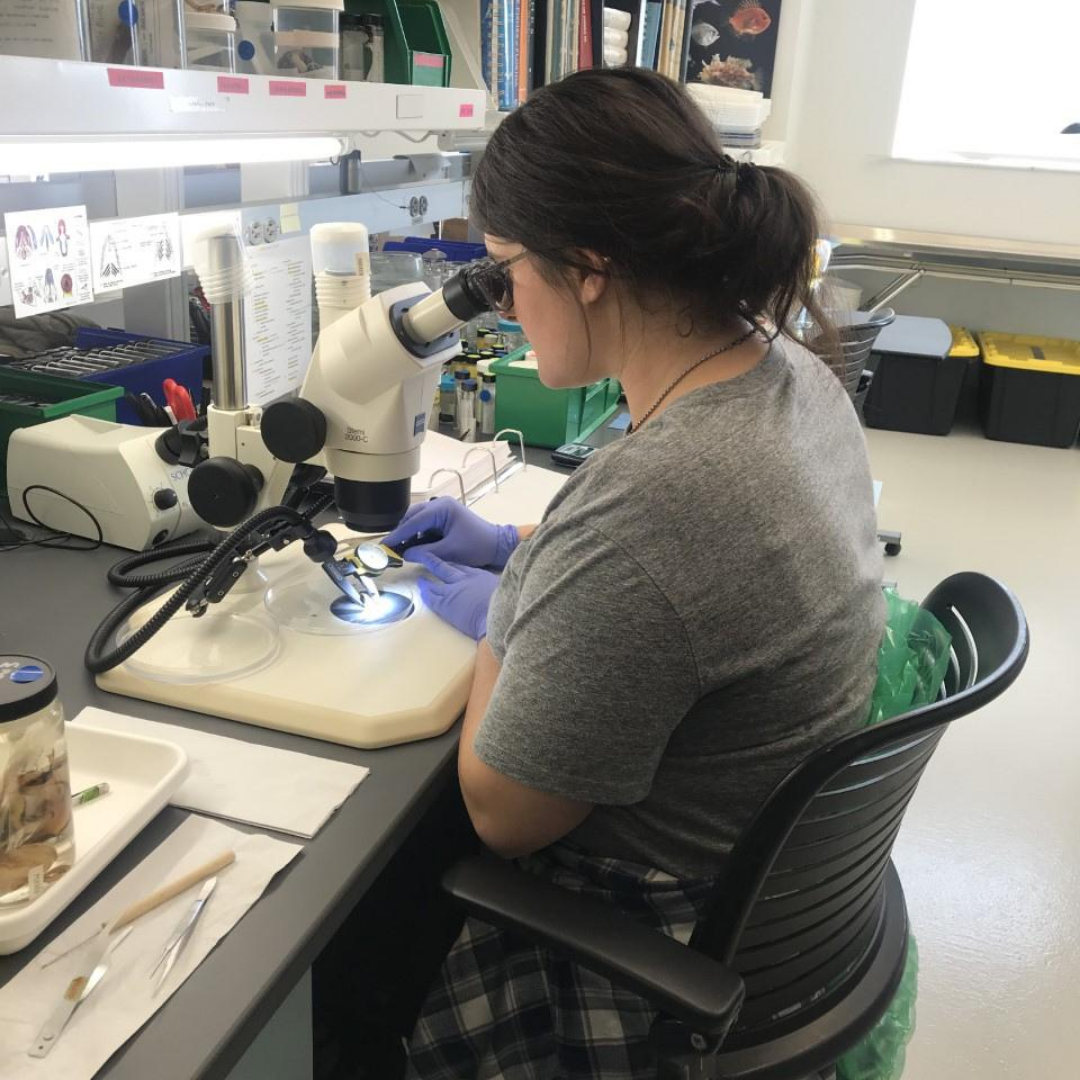NSU Oceanographic Center - Coral Reefs Research Guide: NSU Coral Research
Current NSU OC Research

Since its inception in 1966, Nova Southeastern University Oceanographic Center has a long history of conducting high quality ocean research in a variety of topics and disciplines.
Initially concentrating primarily on physical oceanography, today the Oceanographic Center faculty, researchers, staff, and students pursue studies and investigations in a variety of oceanographic fields including marine biology, geology, ecology, and physics of the marine realm.
Research remains at the forefront of the Center's many initiatives. The Center's faculty and staff are academics, professors, researchers, and teacher/mentors for their students. Much research is extramurally funded through grants, cooperative agreements, contracts, and awards from federal, state, and local governments, from NGO’s, and from private organizations and foundations.
GIS and Spatial Ecology
Dr. Brian Walker
The GIS & Spatial Ecology Lab works on projects that use remote sensing to monitor coral reef systems. The group has worked extensively in the Middle East, Indian, Atlantic and Pacific Oceans and endeavors to fuse observations made from space, with ecological observations made on the ground, in order to unravel the dynamics of coral habitats at reef-scale.
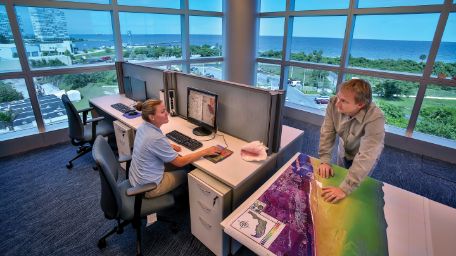
Coral Histology
Dr. Abigail Renegar
The Coral Histology Lab focuses on the study of coral tissues and cells, in order to assess coral health, predict coral spawning events, examine the impact of environmental stressors on coral biology, and learn about coral diseases caused by pathogens and parasites.
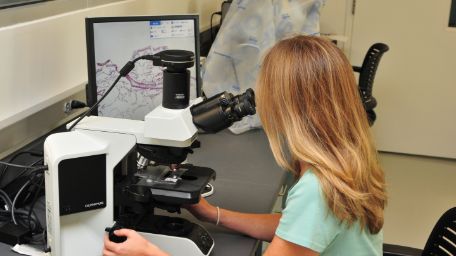
Marine Toxicology
Dr. Abigail Renegar
The Marine Toxicology Lab investigates the impact of chemical contaminants on coral reefs in order to develop management strategies that promote coral reef health and support reef restoration efforts.
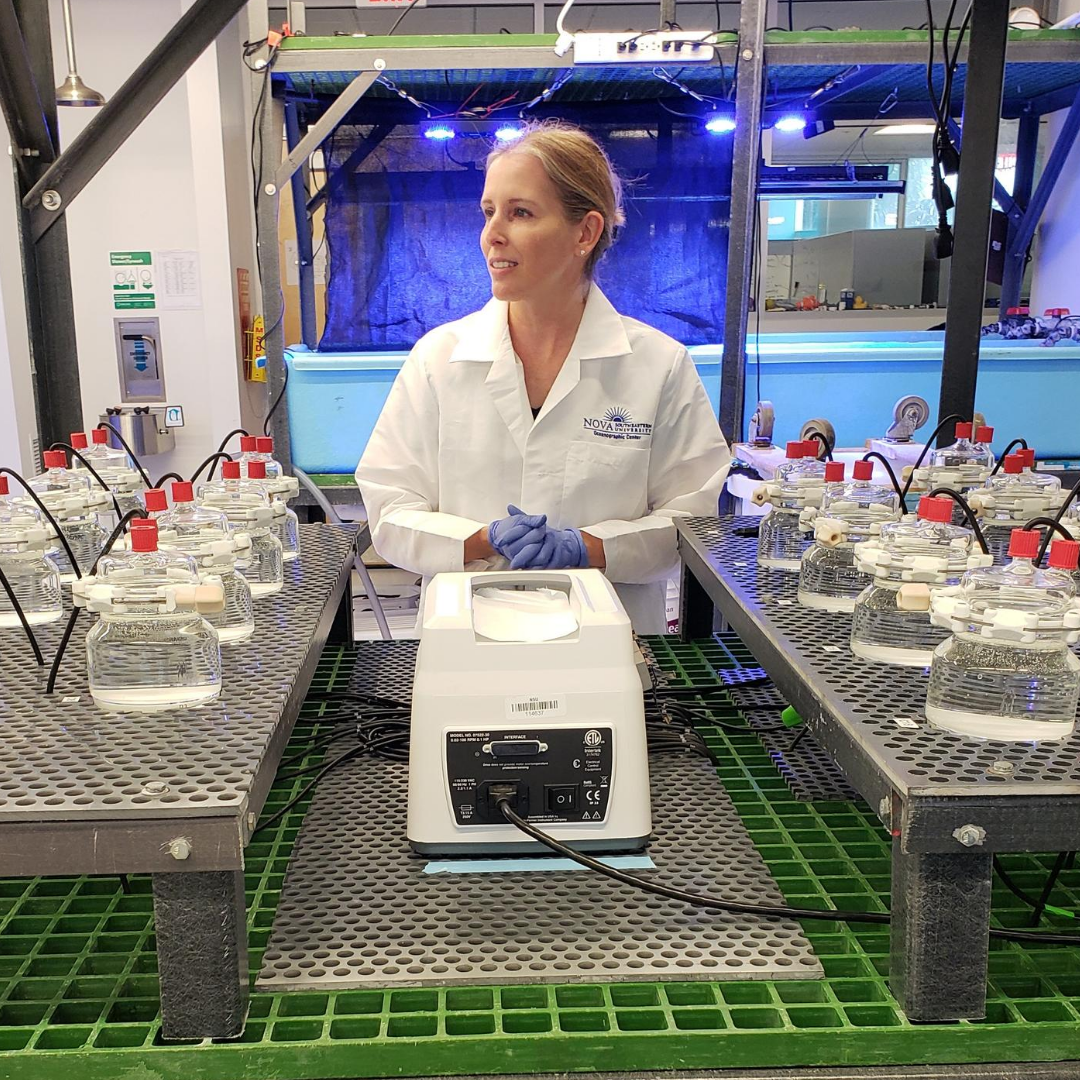
Evolution of Marine Symbiosis
Dr. Timothy Swain
The Evolution of Marine Symbiosis Lab studies symbiotic interactions between marine invertebrates in order to better understand the evolution of functional forms, the role of symbiosis in promoting and maintaining biological diversity, and the effects of climate change on symbiotic associations.

CRRAM
Dr. David Gilliam
The CRRAM (Coral Reef Restoration, Assessment & Monitoring) Lab focuses on coral reef ecology with an emphasis on restoration, assessment, and monitoring. Research includes investigating the ecology, restoration, and conservation of staghorn coral (Acropora cervicornis) populations.

Stony Coral
Dr. Richard Dodge
The Stony Coral Lab studies coral skeletal growth, including growth chronology construction and study for historical reconstruction, studying the structure of coral reefs, studying reef geology and time history, habitat equivalency analysis, and coral reef restoration.
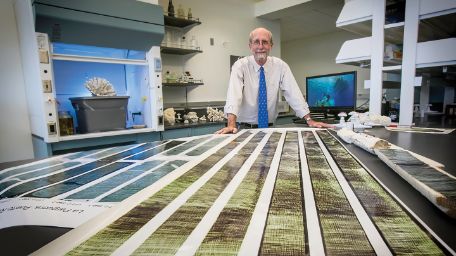
Marine Larval Ecology and Recruitment
Dr. Joana Figueiredo
The Marine Larval Ecology and Recruitment Lab aims to increase the understanding of environmental factors that are hampering the recovery rates of coral populations, and to study how recovery rates can be bolstered by management actions. The lab integrates experimentation and mathematical modeling to predict current and future dispersal patterns of coral species.
